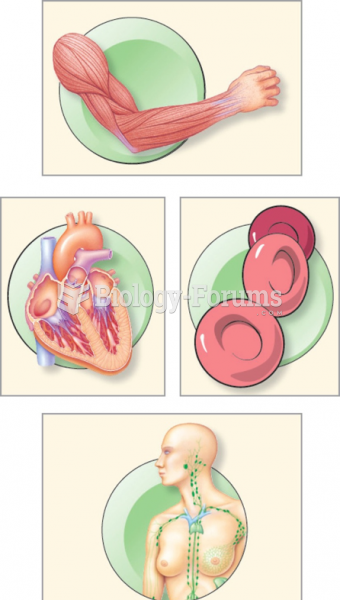This topic contains a solution. Click here to go to the answer
|
|
|
Did you know?
Every 10 seconds, a person in the United States goes to the emergency room complaining of head pain. About 1.2 million visits are for acute migraine attacks.
Did you know?
Blood is approximately twice as thick as water because of the cells and other components found in it.
Did you know?
Vaccines prevent between 2.5 and 4 million deaths every year.
Did you know?
Women are 50% to 75% more likely than men to experience an adverse drug reaction.
Did you know?
Blastomycosis is often misdiagnosed, resulting in tragic outcomes. It is caused by a fungus living in moist soil, in wooded areas of the United States and Canada. If inhaled, the fungus can cause mild breathing problems that may worsen and cause serious illness and even death.







